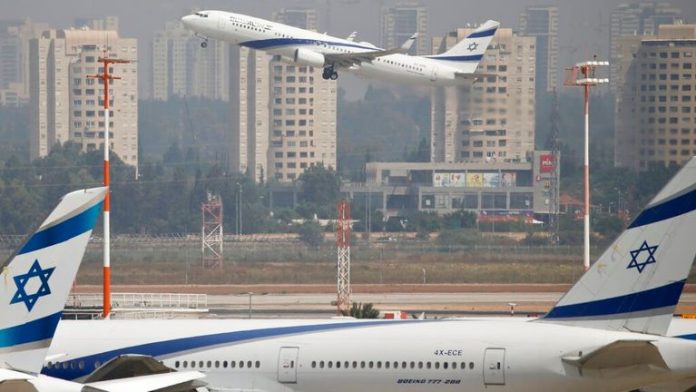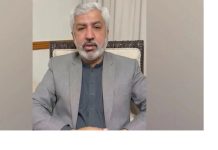TEL AVIV: Israel on Sunday announced a week-long ban on most incoming and outgoing flights in a bid to slow the spread of new variants of the novel coronavirus.
The measure will begin at midnight (22:00 GMT) from Monday into Tuesday and remain in effect until the following Sunday, a statement from the prime minister’s office said.
Exceptions will be made for cargo and firefighting flights, as well as trips for medical treatments, funerals and legal procedures.
A panel of health and interior ministry officials will be able to issue exemptions on request “for humanitarian or personal needs”, the statement said.
The decision came with the country in its third national coronavirus lockdown, initiated in late December and on Tuesday extended until the end of the month due to a surge in deaths from COVID-19.
Earlier on Sunday, Prime Minister Benjamin Netanyahu had announced his government’s intention to close the airport, after variants of the coronavirus were detected among the rising numbers.
“We’re closing the skies hermetically, except for rare exceptions, to prevent the entry of virus mutations, and to ensure that we make swift progress with our vaccination campaign,” he said ahead of a cabinet meeting.
Later, the health ministry announced it had identified cases of a coronavirus variant originating in Los Angeles.
“In the health ministry’s central virus laboratory, a variant from Los Angeles has been located using a sequencing process,” the ministry said in a statement.
“The person confirmed to have this variant has infected four other people.”
Variants from South Africa and Britain have also been found in Israel.
Since the rollout of vaccinations last month, more than 2.5 million of Israel’s nine-million-strong population have been vaccinated, according to the health ministry.
On Saturday, Israel began vaccinating teens aged 16-18, who need to sit final high school exams.
Adi Cohen, 18, told the AFP news agency on Sunday she had “no choice” but to get the shot.
“I have my final exams in a few weeks, so I feel I must take it,” she said from a Jerusalem clinic.
For 17-year-old Shai Ohaion, getting the jab will enable him to be close to his parents again.
“I came to get vaccinated in order not to social distance at home any more. I cannot be close to my parents, as they are vulnerable, which makes the situation difficult,” he said.
















